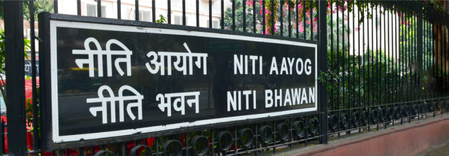New Delhi, 12 September (IANS). In a program of NITI Aayog, experts emphasized the need for strong institutional structures, well -organized regulations and effective industry relations to bring laboratory innovation to society, industry and markets at the earliest, despite intensive scientific abilities in India.
This consultation included institutional leaders, Vice Chancellors and prestigious people from the Ministry/Departments of Institutional leaders, Vice Chancellor and Scientific Ministry/Departments for intensive discussion on the strengthening of India’s research and development ecosystem.
The National Science Academy (INSA) President Professor Ashutosh Sharma and Director General of Scientific and Industrial Research (CSIR), Dr. N Kalaselvi, in their main speeches, emphasized the need to restore the research scenario of India, where preference to ease of research and development.
Telangana Governor Jishnu Dev Verma emphasized that the original strong R&D architecture of the vision of self -sufficient India is to make.
He emphasized that India should not only focus on new knowledge, but the country should also translate these knowledge into such techniques, processes and solutions that strengthen national self -sufficiency and global competition.
In this program, Dr. Anil Kakodkar, former Chairman of the Atomic Energy Commission and Dr. V.K. Saraswat called for a fresh attention to translational routes that connect research institutes with industry clusters, startups and public sector applications to ensure that the value chain ranging from knowledge to perfection to purpose is uninterrupted and skilled.
According to a statement by the NITI Aayog, the participants discussed intensive discussions on models for regulatory frameworks, funding mechanisms, advanced knowledge sources, institutional processes and applied and translation.
Experts further stated that India’s scientific future would not only be defined by Ease of Doing Research but more than that, more than that of converting research into tangible results.
According to the statement, “Policy design, funding preferences and translations in institutional structures have to be included as a basic principle, so that the research of India should move beyond the Enterprise Knowledge Creation to introduce innovation that strengthens the industry that promotes national self -reliance and improves the quality of life of citizens.”
-IANS
SKT/
















